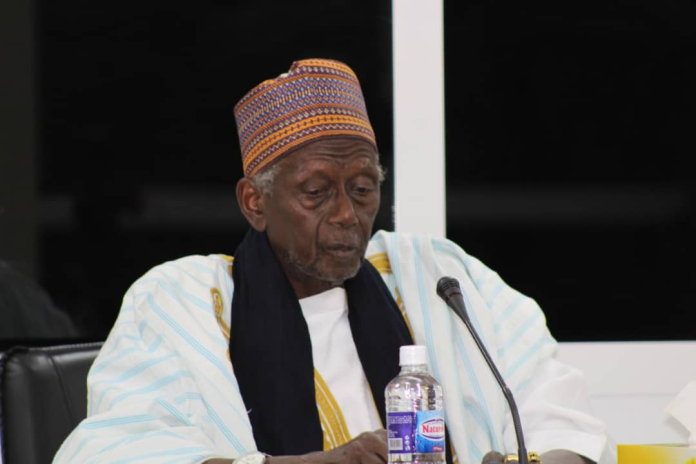
A panel of five Supreme Court judges has dismissed an appeal case filed by former minister Alhajie Momodou MC Cham against the defunct Gambia Commercial and Development Bank.
The panel, presided over by Chief Justice Hassan B Jallow, Justice CS Jallow, Justice MM Sey, Justice BVP Mahoney and Justice K Sillah Camara, ruled that the appeal lacked merits and ordered MC Cham to pay the bank D75,000 as cost.
Delivering the ruling, Justice Mam M Sey disclosed that MC Cham’s appeal was against a ruling delivered by the court of appeal on the 21st April, 2016.
Justice Sey explained that MC Cham was a customer of the Gambia Commercial and Development Bank and that he had mortgaged his properties to the bank to secure a loan.
But according to Justice Sey, MC Cham had contended in his appeal that his properties were never used as security for payment of loans owned by his companies, Kaira Kunda and MCC.
According to the court, the appellant also contended that in March 1991, he had a credit balance of D755, 238.99 in his personal account at the bank and that this amount was used by the bank without his consent to offset Kaira Kunda’s liability amounting to D1,032,774.44 owed to the bank.
Justice Sey revealed that on the 22nd March, 1992, MC Cham as plaintiff issued a writ of summons against the Bank claiming for the recovery of D755,238.99 being the credit balance in his account alleging that the bank had used it to pay off the liabilities of Kaira Kunda without his consent or permission.
Justice Sey further revealed that the bank amended statement of defence and counterclaim revealed that MC Cham owed the bank the sum of D1,584,606.24 on overdraft facilities and monies paid by them upon request.
Justice Sey also disclosed that the High Court, presided over by Justice AA Yeboah, on the 3 July 2009 dismissed MC Cham’s suit.
But MC Cham who was dissatisfied with the decision of the High Court appealed to the Court of Appeal who dismissed his appeal.
Justice Sey added that MC Cham then filed an appeal at the Supreme Court in 2016 but the Apex Court held that he failed to demonstrate any lapses in the judgment being appealed against.
The Supreme Court further held that the appellant did not proffer any proof in support of his contention that the amalgamation of his personal account with that of Kaira Kunda was done without his permission.
The court also declared that it agreed with the findings that the trial judge was right in lifting the veil of incorporation of the appellant company and to have held the appellant personally liable.
By Bruce Asemota


